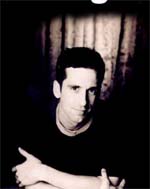
|
|
|
|
|
|
A July 6 report in the ^Seattle Times ~revealed that HIV infection rates are still rising despite years of safer-sex warnings. Some city residents ask why this is happening - believing that doing something about it actively is the only logical approach. Yet others resist any assignment of responsibility to those who engage in unprotected sex, claiming that judgments about the causes of such increases must be considered premature until further research into sexual behaviors has been conducted. Many Seattle activists are now saying that the community can no longer tip toe around infection issues and that the time has come to talk tough about those who continue to fuel the epidemic, spreading the virus. Gay men, according to the ^Seattle Times,~ are especially divided in their approach to ethical, moral and cultural issues. Last autumn, in response to statistics that showed over 80% of HIV cases in King County Washington were the result of men having sex with men, and that one in seven gay men in the county is infected with HIV, gay-community leaders -- working with public health officials -- issued a manifesto placing responsibility [for their venereal health] directly on the individuals engaging in sex. The manifesto states that sexually-active men must always use condoms for anal sex and says that HIV positive men invariably have the responsibility to disclose their status before having sex with any new partner. Yet, even in the face of such devastating facts some, including Seattle's largest gay men's health organization, the Gay City Health Project have resisted implementing any of the demands of the manifesto. They argue that criticism of gay sexual behavior amounts to a moral judgment against gay men's sex, thereby lowering their self-esteem and impelling them, as a result, to carelessly engage in unprotected sex. The Project philosophy holds that by refusing to place blame they are encouraging safer-sex practices because men who feel good about themselves won't engage in unsafe sex. The Gay City Health Project has even gone so far as to promote sex-positive field trips to bath houses for men who've never been to such locales. Though their approach has seen serious increases of HIV infections, they insist that celebrating non-judgmental gay sex is the best way to prevent AIDS. As a result of its no-fault philosophy, and such factors as its bath house tours, the Gay City Heath Project has lost public funding for its projects, as well as support from those who are deeply concerned at the failure of such programs to quell the AIDS epidemic. One of the authors of the manifesto, a gay man living with AIDS in Seattle, asserts that it's men's treatment of others as nothing more than disposable sex objects that's fueling the epidemic. He hopes that dealing with the issue in a no-nonsense way will cause gay males to rethink their priorities.
New drugs, and the advertising campaigns of the companies that market them, while life-savers, are also a part of the problem. Young people today don't see their friends wasting away from the disease. They aren't attending as many funerals. But, while the miracle of drug cocktails has improved life for most HIV positive people, they also have serious side effects, and AIDS even as a manageable disease doesn't signal outdoor fun and games as many drug company ads suggest. Still, it's not easy for the HIV positive individual to be completely honest with his peers. Disclosing his positive status, he's often confronted with fear and loathing on the part of a prospective sexual partner. He may wonder why he should bear all of the responsibility for preventing AIDS when the taking of such a responsibility ruins his sex life. Those insisting on safe-sex and honest behavior reply that it doesn't matter that honesty can be difficult. As far as they're concerned, HIV positive individuals have a moral responsibility to protect the community from further spread of HIV. In Washington, it is illegal to transmit or expose others to HIV an act regarded as a violent crime, though few have been prosecuted. Apologists for those who do not warn their partners insist that they aren't violent criminals but just poor, confused souls, ashamed of the stigma attached to their HIV positive status. Those who see this attitude as fueling the epidemic, respond by saying it's time for the confused to act like grown-ups. The new anti-AIDS activists aren't accepting of the position that admitting one's HIV status is too painful an experience . HIV+ positive individuals who agree with the idea of getting tough say that maturity demands dealing with rejection rather than engaging in behavior that spreads infections. They understand that one of the responsibilities of one's status must always be use of a condom, regardless of the fact that most prefer not to do so. The arguments of those who complain about the pain of disclosing an HIV positive status to a prospective partner fails to impress them. |
|
 Seattle, Washington--A controversy is sweeping the gay community in Seattle and
is surfacing as well in other parts of the nation. HIV and AIDS prevention have once again become
hot topics in conversations.
Seattle, Washington--A controversy is sweeping the gay community in Seattle and
is surfacing as well in other parts of the nation. HIV and AIDS prevention have once again become
hot topics in conversations.
 Sex advice columnist Dan Savage
Sex advice columnist Dan Savage